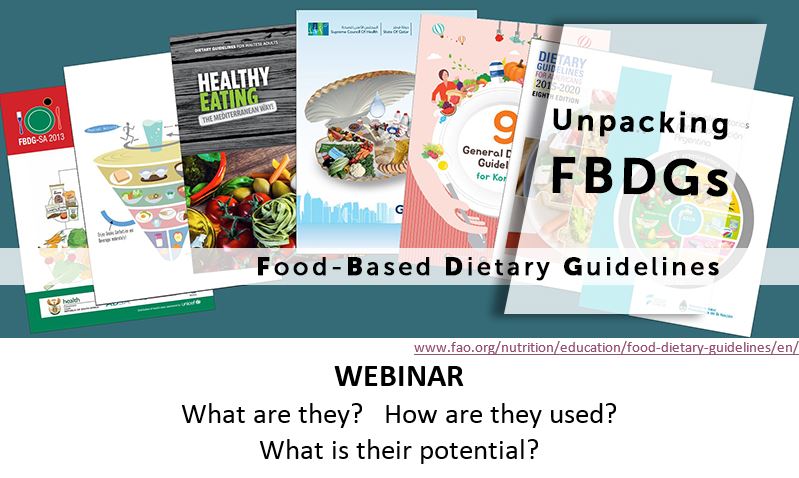Sustainable Food Systems
FAO Webinar: Food-Based Dietary Guidelines: What are they? How are they used? What is their potential?

Tuesday 4 June
13.00 (GMT), 14.00 (CET)
Presenter: Fatima Hachem
Senior Nutrition and Food Systems Officer
Nutrition Education and Consumer Awareness Group, FAO
In the arena of food and nutrition, consumers around the globe are bombarded with information and advice on how to eat better in order to improve health and well-being. Having dietary guidelines that are food-based, built on scientific evidence and culturally and economically appropriate to the local context is what governments have been engaged in establishing in the last few decades. Although these guidelines were thought essentially as a consumer education tool, the data and information base on which they are founded goes beyond the nutritional problems at country level to span a wide area of related sectors and policies. This renders the dietary guidelines useful for a range of other usages while addressing the local public health and nutrition priorities, including public procurement, social protection, food subsidies, food security and nutrition and agricultural policies.
FAO has been actively assisting Member Countries in the development, implementation and revision of their Food-based Dietary Guidelines (FBDGs) and has been periodically reviewing the progress made in the development and use of FBDGs as well as tracking changes in their overall focus and orientation. FAO also hosts a growing online repository of FBDGs which is proving useful for researchers and policy-makers alike.
Join us for this webinar where we will provide an overview of food-based dietary guidelines focusing on the following questions:
- What are national FBDGs?
- How have they been traditionally used?
- What is their potential use?
The webinar will also highlight some examples of national FBDGs across the world, and present FAO’s current work in this field.
This is the first of a series of 6 webinars on FBDGs that are organized by the Nutrition Education and Consumer Awareness Team of FAO






